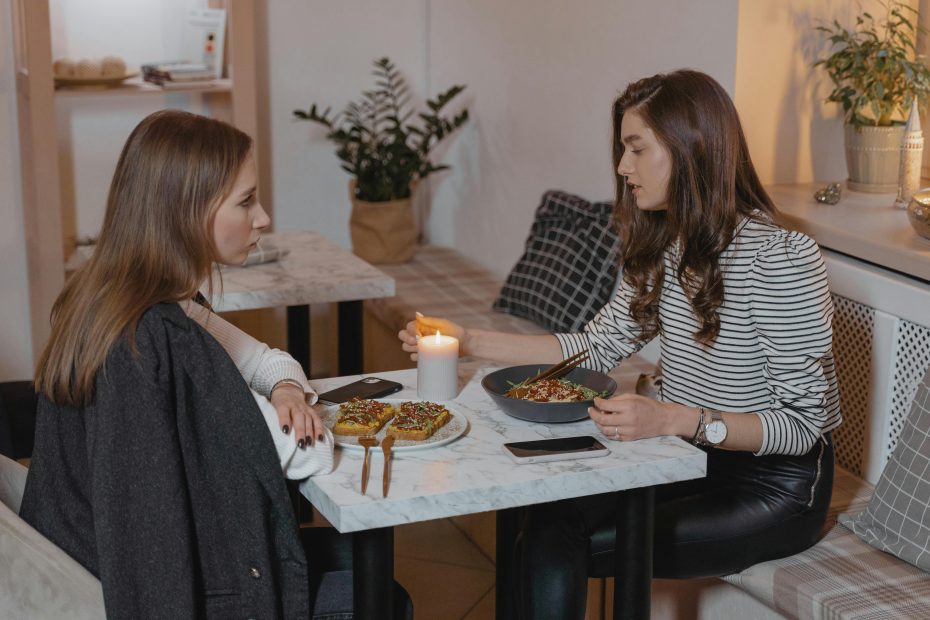Not all envy comes from afar. Some wear the mask of affection, sit beside you, like your photos, and ask how you are—yet deep down, they’re hoping things fall apart. Envious friendships exist, and they’re far more common (and disguised) than we’d like to admit.
Living with this kind of energy can be exhausting and confusing. After all, how do you suspect someone who laughs at your jokes and says they love you? How do you deal with a feeling as human as envy without becoming paranoid or cold toward those around you?
In this article, we’ll explore the delicate terrain of friendships secretly tainted by envy. Let’s look at the signs, reflect on the emotional toll, and most importantly, learn how to protect our energy without losing our empathy.
Compliments with a sting: signs of an envious friend
Envy doesn’t always show up with drama. In fact, envious friends often reveal themselves in small ways: a flickering gaze, an awkward silence when you share good news, or a joke that feels more like a jab than a tease.
Phrases like “wow, you’re so lucky” or “wish I had your life” may sound harmless, but when repeated with a tone of sarcasm or bitterness, they hint at discomfort. They’re compliments that don’t celebrate your joy—they compare it to what the other person feels they lack.
Another classic sign is selective disappearance: the friend who vanishes when you’re thriving, but reappears full of opinions when things go wrong. Or the one who never cheers you on but is always ready to point out flaws and compete.
The root of envy: what lies beneath this emotion?
Envy is born from constant comparison. It shows up when someone struggles to see their own worth and starts measuring their happiness against yours. In friendships, it’s even more delicate because there’s closeness. Seeing someone dear to you achieving dreams you haven’t reached yet can trigger deep frustration.
But let’s be clear: feeling envy is human. The problem begins when it’s denied and turns into destructive actions, subtle sabotage, or resentment masked as concern.
The draining friendship: when you leave feeling worse than you arrived
Real friendship nourishes, strengthens, and brings peace. But when envy enters the picture, it starts draining your energy. You feel emotionally depleted, misunderstood, and uncomfortable—even when there hasn’t been a direct conflict.
Sometimes, you start hiding your wins, avoiding sharing good news, or shrinking yourself to avoid stirring discomfort. That’s a clear sign something is off.
Friendship should never be a place where you have to make yourself smaller to be accepted. If you can’t be fully yourself—with your victories and your flaws—maybe that relationship needs a second look.
When jealousy disguises itself as concern
Sometimes envy wears the mask of care: the friend who always has advice that discourages you, who warns you about risks you didn’t ask about, who insists on pointing out the downside of every decision you make.
It may look like love, but often it’s a way to keep you from outgrowing the role they’re comfortable seeing you in. Other people’s insecurities can turn into emotional cages—especially when you trust them so much, you don’t realize you’re being subtly manipulated.
Protecting your light without dimming anyone else’s

Dealing with envy in friendship requires wisdom. It’s not about cutting off everyone with insecurities, but rather recognizing who’s willing to grow with you—and who only wants you to stay still so they don’t feel left behind.
It’s possible to have relationships with people who’ve felt envy at some point, as long as there’s emotional honesty, a willingness to grow, and maturity to own up to those feelings.
Most importantly: never dim your light to make others comfortable. Your brightness only unsettles those who haven’t yet understood there’s enough space for everyone to shine.
Cut ties or start a conversation? When walking away is an act of self-love
Confrontation isn’t always the answer. Sometimes, it’s worth talking it out, expressing what you feel with empathy. Other times, it’s better to quietly distance yourself—preserving your energy without feeding into drama.
Just remember: you don’t owe loyalty to someone pretending to root for you. True friendship doesn’t compete, belittle, or sabotage.
Step away from what weakens you. Surround yourself with people who celebrate you—not those secretly waiting for you to stumble. Good friends lift you up, inspire you, and hold you with truth, especially when you’re shining your brightest.
In the end, friendship is also a mirror
The friendships we choose reflect how we see and treat ourselves. Accepting too little, enduring sabotage, or normalizing emotional discomfort can reveal just how much (or how little) we believe we deserve peaceful, supportive connections.
Envious friendships exist, but you don’t have to carry that weight. Watch closely, trust your intuition, and choose wisely who walks beside you.
Whoever can’t handle your light doesn’t deserve to walk next to you during your brightest moments.
